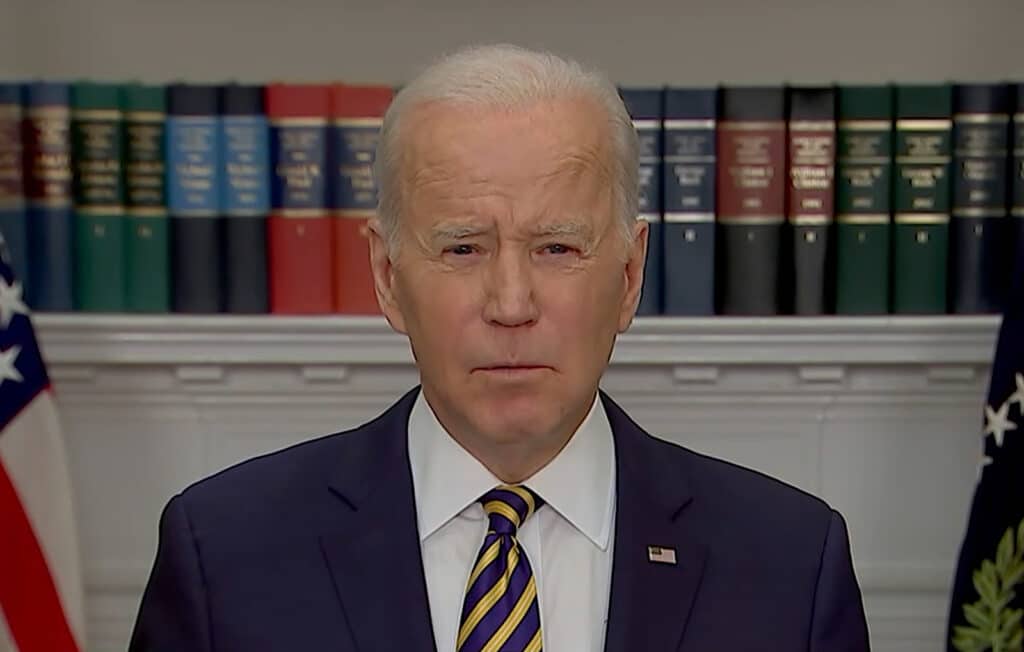Biden Bans Import of Russian Oil and Gas
[ad_1]
President Joe Biden announced Tuesday a ban on the import of Russian oil and gas as a result of its ongoing war in Ukraine.

The move came the same day U.S. fuel prices hit an all-time record of $4.17 a gallon for regular self-serve, and with energy analysts warning there is still significant upward momentum. In parts of California, the AAA reported gas prices running up to $7, with the state average at $5.44 a gallon on Tuesday.
In a statement, the president said he was “targeting a main artery of Russia’s economy,” though Russian supplied only 3% of the total crude oil used in the U.S. last year, according to the U.S. Department of Energy.
“Today, I am announcing the United States is targeting the main artery of Russia’s economy,” the president said. “We’re banning all imports of Russian oil and gas energy. That means Russian oil will no longer be accepted in U.S. ports, and the American people will deal another powerful blow to Putin’s war machine.”
Europeans hesitate

Russia produces about 12% of the world’s petroleum and 17% of its natural gas, according to J.P. Morgan. And it is a key supplier to Western European markets, notably including Germany which has backed out of plans for a new pipeline that was to expand its supply of Russian natural gas.
The president said he consulted various allies before moving ahead with the U.S. cutoff. He noted some “may not be in a position to join us.” Indeed, CBS news quoted a French official saying the European Union will not follow the lead of the U.S. Great Britain, which has pulled out of the EU, did say that it will phase out imports of Russian oil and oil products by the end of 2022.
Russia has been hit with a broad array of sanctions since it launched its attack on Ukraine two weeks ago. That includes numerous moves to sever it from global financial institutions such as SWIFT. That group oversees the transfer of funds through the banking network. A number of businesses, including automakers Ford and Stellantis, have either suspended or completely shuttered operations in Russia.
On Tuesday, McDonalds became one of the latest to say it would temporarily shut its restaurants there down indefinitely. Oil giant Shell, meanwhile, said it is severing all ties to Russia.
Increasing chaos

But the war has created chaos in the global economy, raising the prospect of surging inflation and shortages of some key raw materials produced in Russia. For the auto industry, these including metals like aluminum, palladium and nickel which have already experienced a sharp surge in price.
“The decision today is not without cost here at home,” Biden said Tuesday. “Putin’s war is already hurting Americans at the gas pump. Since Putin began his military buildup on Ukrainian borders, just since then, the price at the gas pump in America went up 75 cents. And with this action, it’s going to go up further. I’m going to do everything I can to minimize Putin’s price hike here at home.”
At $4.17 a gallon, regular unleaded is more expensive than ever, topping the previous peak of $4.10 set back in July 2008. Adjusted for inflation, however, that would actually work to $5.31 a gallon today.
Americans appear to support the president’s latest move, however. New polls by both Reuters/Ipsos and Quinnipiac University find the majority of American approving of the ban even if it means further increases in gas prices. The oil ban was well received in Ukraine. “Thankful for US and @POTUS personal leadership in striking in the heart of Putin’s war machine and banning oil, gas and coal from US market,” President Volodymyr Zelensky said in a Twitter post. “Encourage other countries and leaders to follow.”
[ad_2]
Source link




.jpg)

